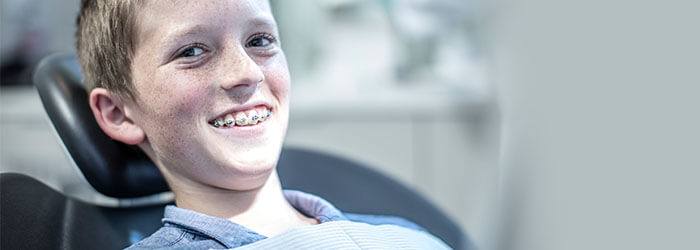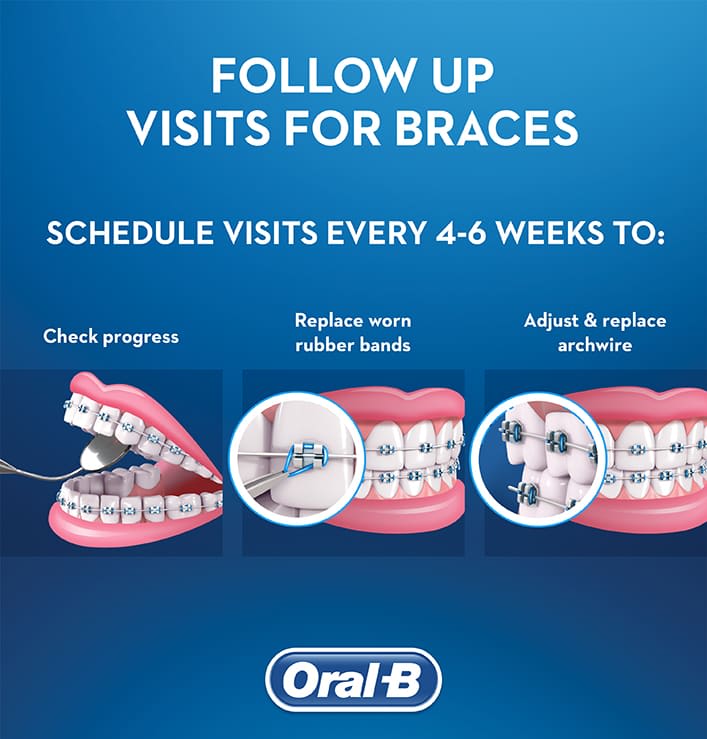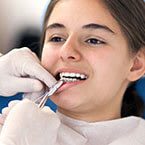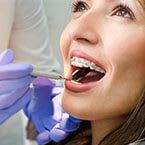Braces: Your Final Appointment

Table of Contents
How long will it take to get my braces taken off?
About an hour.
Will I have advance notice that my braces are going to come off?
Probably. Your orthodontist will most likely have told you at your last adjustment that they expect you'll be ready to have your braces removed at the next visit. However, this is only their best guess – if your teeth move unexpectedly, or not enough, between appointments, removal may be postponed.
Will it hurt?
No. You should feel a little pressure when the braces are being removed, but no pain.
However, your new retainer may hurt a bit.
What should I expect?
The orthodontist will use pliers to remove all the brackets, thoroughly scrape and clean all the glue off your teeth, and take a mold for your new retainer.
What will my teeth look like?
How your teeth will look depends entirely on how well you cared for them while wearing braces. They may look perfect if you cared for them well, or they may be covered with yellow tartar and marks called " white scars" if you did a poor job.
While still wearing braces, brush with an electric toothbrush like the Oral-B iO. It surrounds each tooth to effectively remove more of the plaque that can lead to staining and decay. Or brush with an electric toothbrush equipped with an ortho brush head like the Oral-B Pro Tip, it’s uniquely designed to easily clean around dental work such as braces. And, don’t forget to floss! Oral-B Super Floss is perfect for cleaning braces and wide gaps.
What's next?
Don't expect to be completely finished with the orthodontist - almost all patients need to wear a retainer after they get their braces off to hold the teeth in their new positions. Many orthodontists now recommend wearing retainers for years, and sometimes indefinitely, to prevent teeth from slowly shifting out of place.
How should I care for teeth afterwards?
Wait at least a month before any sort of bleaching or whitening treatment. This will give the newly exposed enamel time to become less sensitive.
Your teeth and gums will be a bit sensitive at first. Don't immediately rush out and binge on crunchy and chewy previously forbidden foods – ease into it. To help ease sensitivity while brushing try switching to an Oral-B iO electric toothbrush. Equipped with a sensitivity mode, the Oral-B iO combines the dentist-inspired round brush head with micro-vibrating bristles for a powerful clean that’s gentle on gums and teeth.
Schedule a dental cleaning – there are likely areas that have been neglected over the past couple of years (although paying close attention to your oral hygiene will have helped with this.)
Tips for dealing with your new retainer
It will be difficult to speak at first, and you may have a lisp. If you practice speaking, reading aloud, or singing as much as you can, this should go away in a day or so. It may feel embarrassing, but it's the best way to get your mouth used to working around the plastic and wires.
You may also find yourself drooling or dealing with extra saliva at first. This is normal and will go away after the first day or two.
When taking your retainer out for a meal, do not leave it on a napkin! This is the most common way that retainers are lost because people accidentally throw them in the trash.

Table of Contents
- How long will it take to get my braces taken off?
- Will I have advance notice that my braces are going to come off?
- Will it hurt?
- What should I expect?
- What will my teeth look like?
- What's next?
- How should I care for teeth afterwards?
- Tips for dealing with your new retainer
-
- Related Articles

Sign Up
for expert advice and exclusive offers

Sign Up
for expert advice and exclusive offers




